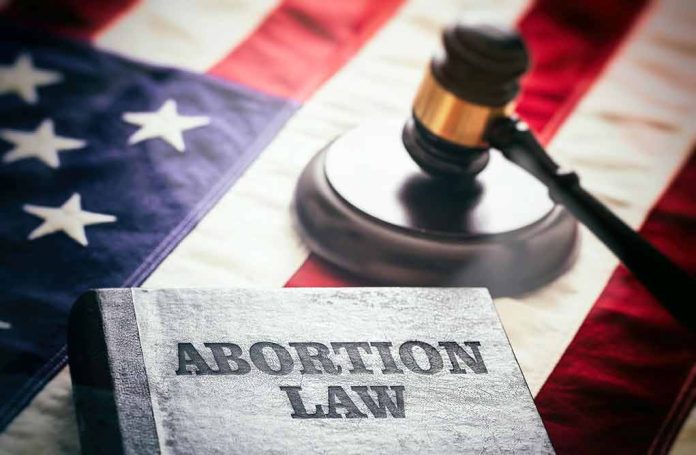
Nebraska and South Dakota voters reject abortion amendments, upholding strong pro-life laws in both states.
At a Glance
- South Dakota voters rejected an amendment that would have allowed abortion in the first trimester
- Nebraska voters added a 12-week abortion ban to the state constitution
- Both states maintain some of the strictest abortion laws in the country
- Pro-life groups celebrated these victories as crucial for protecting unborn life
South Dakota Upholds Strict Abortion Ban
In a significant victory for the pro-life movement, South Dakota voters decisively rejected a proposed constitutional amendment that would have allowed abortions during the first trimester of pregnancy. This decision ensures that South Dakota will continue to enforce one of the nation’s most restrictive abortion laws, with exceptions only to preserve the life of the pregnant woman.
The amendment’s failure was celebrated by pro-life organizations and political figures alike. Governor Kristi Noem took to social media to express her approval, stating, “South Dakotans voted for LIFE tonight.” This sentiment was echoed by national pro-life groups who saw the result as a reaffirmation of the state’s commitment to protecting unborn children.
Nebraska Enshrines 12-Week Abortion Ban
Meanwhile, Nebraska voters took a strong stance in favor of life by rejecting a pro-abortion amendment and instead adding a 12-week abortion ban to the state constitution. This decision effectively closes the door on attempts to expand abortion access in the state and solidifies Nebraska’s position as a pro-life stronghold in the Midwest.
BREAKING: Nebraska has become the 1st state to have an anti-abortion measure win on the ballot since the Supreme Court overturned Roe v. Wade
It also became the 2nd state to reject a measure to protect abortion rights, following South Dakota https://t.co/WlgM9tPjYL
— Oriana González (@OrianaBeLike) November 6, 2024
“Precious boys and girls will live as a result of this vote, and the state will be immensely better off as they grow to fulfill their God-given purposes,” said Marjorie Dannenfelser, president of Susan B. Anthony Pro-Life America.
The Nebraska initiative faced significant opposition from pro-abortion groups, but ultimately, voters chose to prioritize the protection of unborn life. This outcome highlights the state’s conservative values and reflects a desire to maintain stricter abortion regulations.
Pro-Life Movement Gains Momentum
The victories in South Dakota and Nebraska come at a crucial time for the pro-life movement, as several other states have recently passed measures to protect or expand abortion rights. These outcomes demonstrate that there is still strong support for pro-life policies in many parts of the country, particularly in more conservative states.
“We are grateful to God and to the people of the state of South Dakota! As South Dakotans learned the truth about the extreme dangers of Amendment G, they sent a message loud and clear today: We protect mothers and children,” stated the Life Defense Fund, highlighting the importance of educating voters on the implications of such amendments.
These results also serve as a counterbalance to the expansion of abortion rights in other states, such as Missouri, where voters approved an amendment to undo one of the nation’s most restrictive abortion bans. “Today, Missourians made history and sent a clear message: decisions around pregnancy, including abortion, birth control, and miscarriage care are personal and private and should be left up to patients and their families, not politicians,” said Rachel Sweet, campaign manager of Missourians for Constitutional Freedom. The contrasting outcomes underscore the deeply divided nature of the abortion debate in America and the importance of state-level decision-making in the wake of the Supreme Court’s 2022 decision to overturn Roe v. Wade.
Looking Ahead
As the national conversation on abortion rights continues, the outcomes in Nebraska and South Dakota are likely to embolden pro-life advocates and lawmakers in other states. These victories may serve as a blueprint for future campaigns to protect and strengthen abortion restrictions through constitutional amendments and voter initiatives.
While pro-abortion groups have often outspent their pro-life counterparts in recent ballot measure campaigns, the results in Nebraska and South Dakota demonstrate that grassroots organizing and clear messaging about the value of unborn life can still prevail. As more states grapple with this issue in the coming elections, the pro-life movement will undoubtedly look to build on these successes and continue their efforts to protect the unborn across the nation.






















